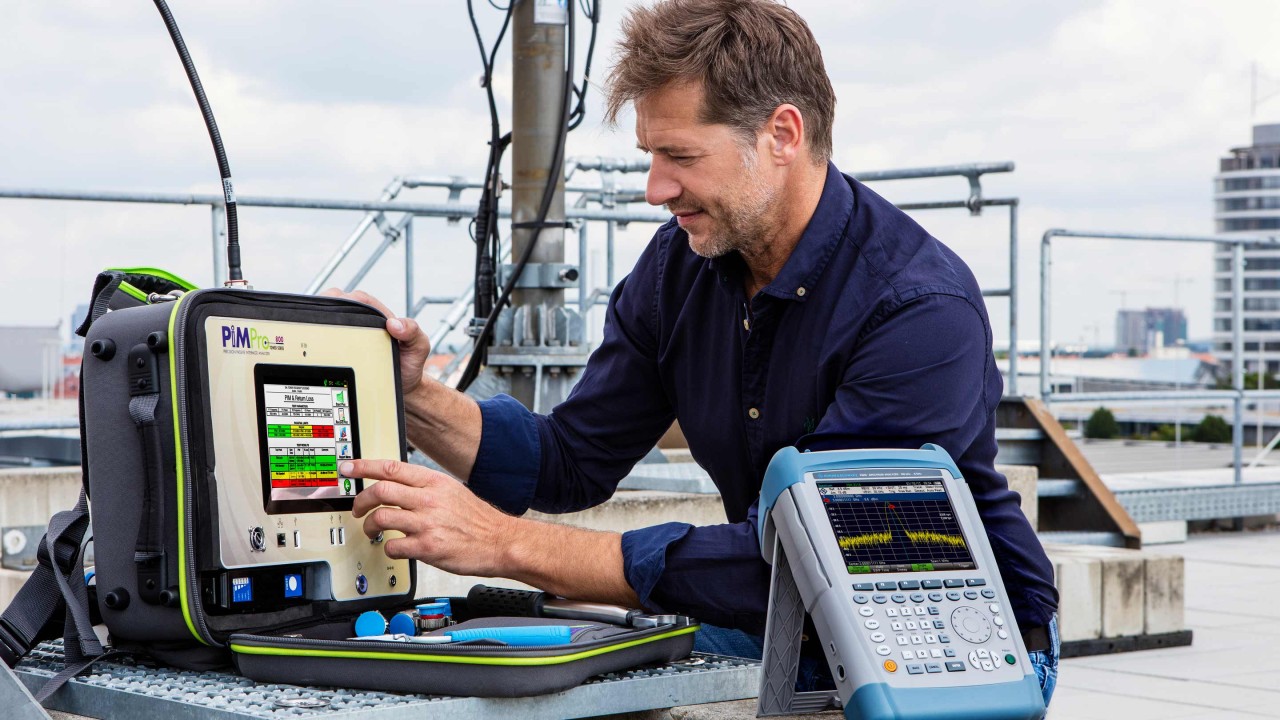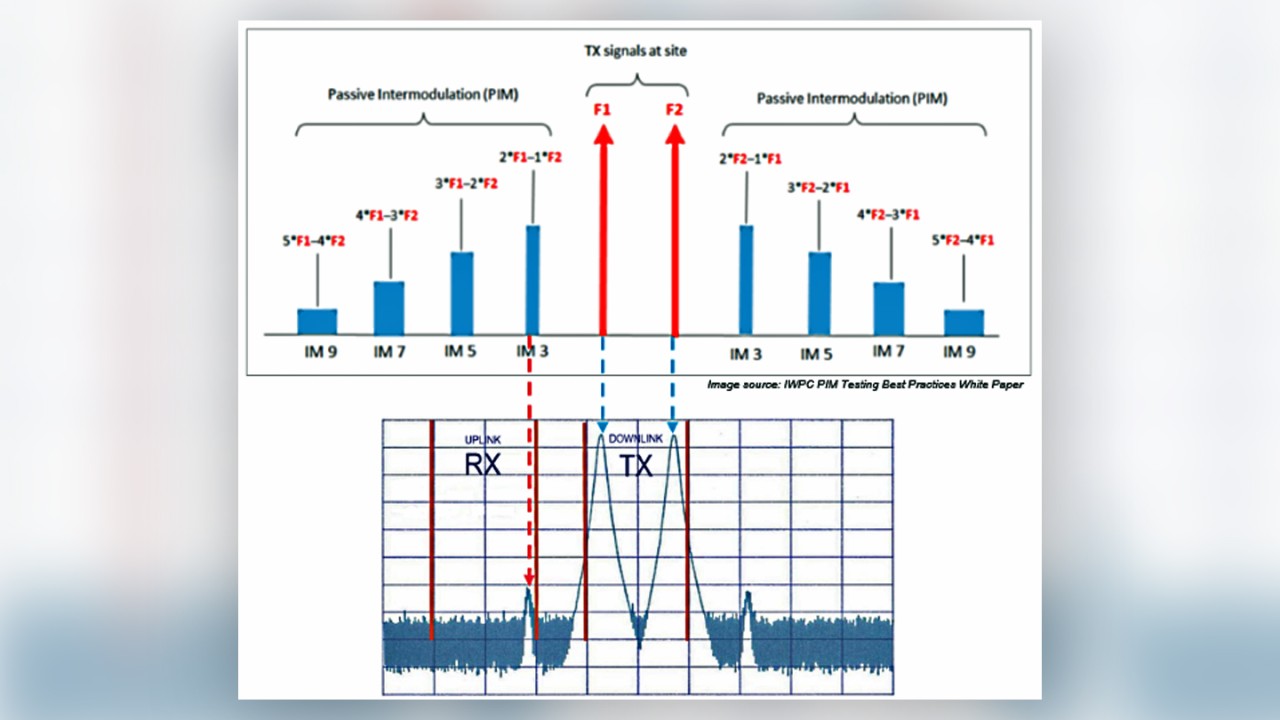Written by Yunuen Wagner | December 18, 2016


The source of PIM problems could be a tiny metal flake in one of the connectors, or it could be that connectors are not properly tightened; the problem might also be outside the RF path, caused by a corroded bolt close to the antenna.
What is PIM?
Passive intermodulation is a signal distortion generated when signals encounter “non-linear” junctions in the RF path. These nonlinearities are usually caused by defective or wrongly installed passive components, such as old, defective BTS antennas or poorly terminated connectors, which then behave like mixers, generating new frequencies.


In the graph, we see the multiple intermodulation products created by two signals. In FDD (frequency division duplex) networks, this means that the BTS’ own transmitted downlink (DL) signal interferes with the uplink (UL) band. This diminishes the network’s performance, resulting in lower data rates, dropped calls, or no coverage at all.
The solution for passive intermodulation
At Rohde & Schwarz mobile network testing, we offer a broad and diverse product portfolio for every test scenario in the network lifecycle – from base station installation (cables, antennas, TMA, etc.) to network acceptance and benchmarking to optimization, monitoring, and interference hunting. Missing, until now, was a PIM analyzer.
After signing an agreement with Communication and Components Inc., we integrated their PIM analyzer, the PiMPro Tower, into our mobile network testing portfolio. Now, we can offer you a more comprehensive solution set for base station installation and maintenance.
Conveniently light, starting at 8.5 kg in the high-frequency models, the PiMPro Tower comes in a compact and reinforced backpack. Even in battery mode, the PIM analyzer can deliver two 40 W output signals. PIM, return loss, distance-to-PIM, and distance-to-fault measurements can be performed quickly, efficiently, and in the same RF port, without requiring additional hardware.
Keep coming back to MNT stories & insights, where we will talk more in-depth about this topic and other challenges when servicing your sites. In the meantime, to prevent or reduce PIM, see that your connectors are clean, make sure that the mating surface is undamaged, and keep them well tightened (use the torque wrench!).






